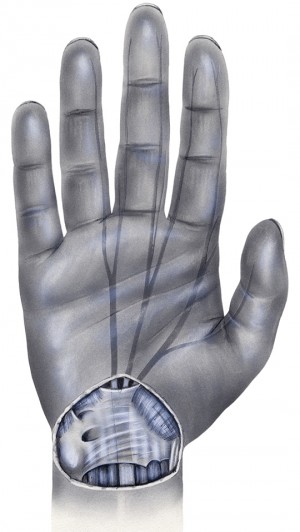What is carpal tunnel syndrome?
Carpal tunnel syndrome (CTS) is a disorder of the hand and wrist in which a nerve becomes compressed and irritated, resulting in pain, tingling and numbness.
Carpal tunnel syndrome is considered a repetitive motion injury or “cumulative trauma disorder” because it usually develops after months or years of repetitive strain.
We have 3 convenient locations throughout Southeastern Wisconsin.
What are the symptoms of carpal tunnel syndrome?
Painful tingling in one or both hands at night is usually the first symptom of carpal tunnel syndrome. The fingers may feel useless or swollen even if no swelling is apparent. As symptoms progress, tingling may be felt during the day, usually in the thumb, index or middle fingers.
The ability and power to squeeze things may diminish. If CTS continues, the muscle at the base of the thumb may atrophy and strength is lost. Patients with carpal tunnel syndrome may have difficulty differentiating hot from cold by touch. They may lose strength in their fingers, appear clumsy in performing tasks such as picking up small objects or tying their shoes.

How is carpal tunnel syndrome diagnosed?
CTS is diagnosed by reviewing the patient’s symptoms. Holding your wrists in a bent-down position for one minute can often reproduce symptoms of carpal tunnel. A nerve conduction test may also be performed to determine the amount of pressure on the median nerve.
Is surgery necessary for carpal tunnel syndrome?
Surgery may be performed on an outpatient basis to cut the ligament that forms on the roof of the carpal tunnel. To learn more, please visit the Carpal Tunnel Surgery page.


